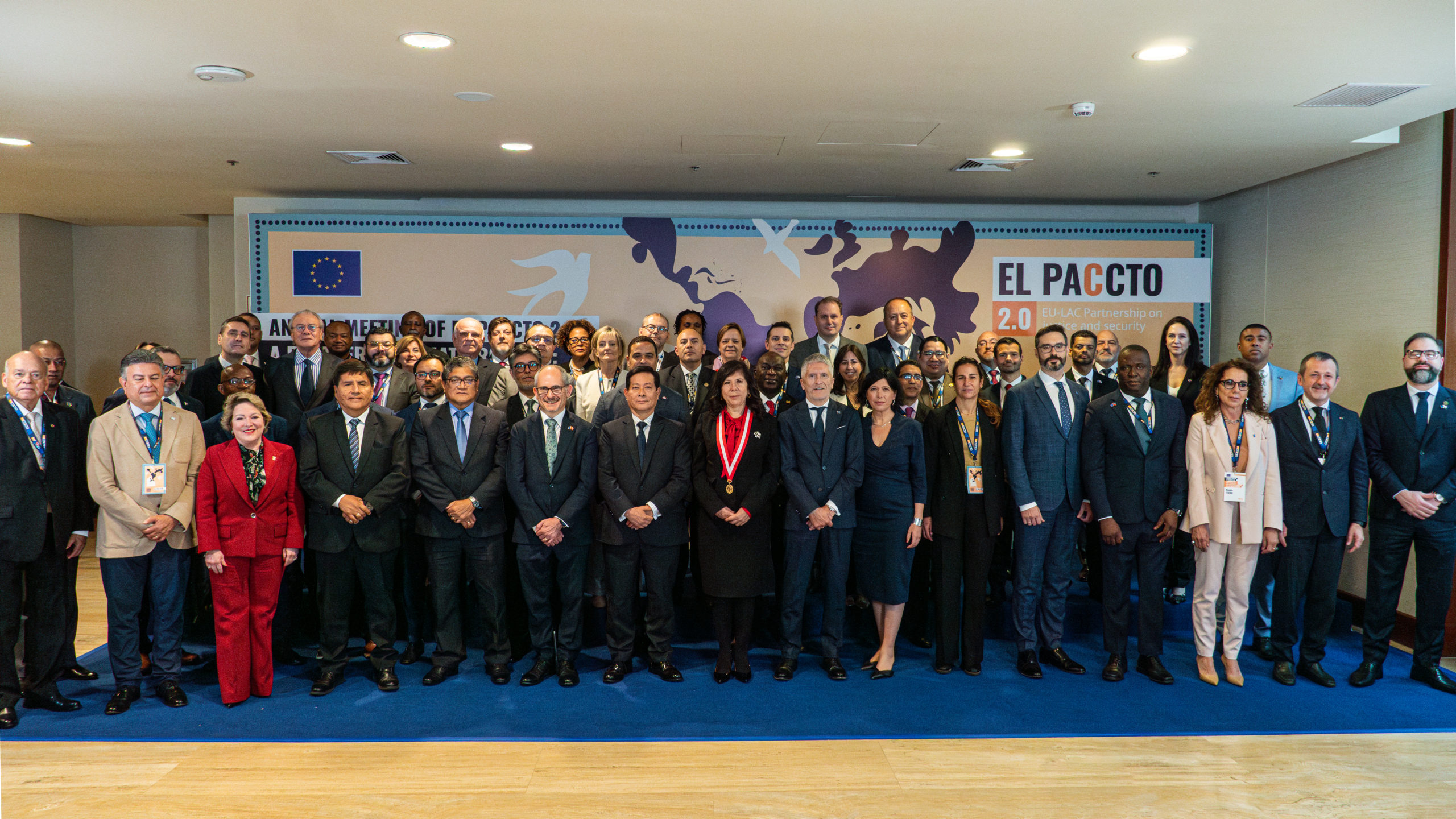Saint Kitts and Nevis Spearheads European Union Partnership to Combat Organized Crime, Advocating for Regional Cooperation
Saint Kitts and Nevis has taken a prominent role in advocating for stronger regional collaboration and institutional resilience against organized crime at the EL PAcCTO 2.0 Annual Meeting in Lima, Peru. Attorney General Garth Wilkin represented the Federation at this crucial gathering of justice and security leaders from Europe, Latin America, and the Caribbean, emphasizing the Caribbean’s critical position in the fight against transnational criminal activities. His participation included moderating a high-level dialogue on the evolving challenges of organized crime and delivering a keynote address focusing on the rule of law’s role in combating these threats.
Attorney General Wilkin’s contributions highlighted the complex and technologically advanced nature of contemporary criminal networks. He stressed that these networks extend beyond traditional drug and weapons trafficking, now encompassing digital identities, illegal gold, and even the manipulation of influence. He argued that the Caribbean, often viewed as a peripheral player, is in fact central to the fight against organized crime due to its function as a transshipment hub and its increasing vulnerability to arms flows, digital exploitation, and the infiltration of institutions. This perspective underscores the urgent need for a shift in perception and a more inclusive approach to tackling transnational criminal activities.
The Attorney General’s keynote address centered on the concept of “transnational rule of law.” This framework emphasizes the necessity of robust regional cooperation and legal solidarity while respecting the legal sovereignty of individual nations. He advocated for a justice system that is not only strong and responsive but also adaptable to the future challenges posed by the evolving nature of organized crime. This forward-looking approach recognizes that static strategies are insufficient in the face of dynamic criminal threats, demanding proactive and adaptable measures. He specifically highlighted Saint Kitts and Nevis’s active involvement in regional initiatives such as CARICOM IMPACS and the OECS’s judicial modernization efforts, demonstrating the Federation’s commitment to collaborative action.
Wilkin’s call for regional and bi-regional solidarity was underscored by his assertion that organized crime in the Caribbean has transitioned from episodic occurrences to a structural reality, destabilizing small states. He argued that the response to this challenge requires not just strong individual institutions but also seamless interoperability between regional entities. This interoperability, according to Wilkin, is essential for effectively confronting the agile and interconnected nature of modern criminal networks. He further emphasized the importance of international platforms like EL PAcCTO 2.0 and the CCJ-led Needham’s Point Declaration as crucial frameworks for coordinated action.
EL PAcCTO 2.0 (Europe Latin America Programme of Assistance against Transnational Organised Crime), the focus of the Lima meeting, represents a vital partnership between the European Union, Latin America, and the Caribbean. This program aims to bolster efforts against transnational organized crime through enhanced cooperation and resource sharing. The inclusion of the Caribbean in this second phase signifies the growing recognition of the region’s strategic importance in combating global criminal networks. The program’s agenda addresses critical areas such as digital justice tools, cross-border intelligence sharing, and legal responses to emerging forms of crime, reflecting a comprehensive approach to the multifaceted challenges posed by organized crime.
The Attorney General concluded his address with a call for concrete action, urging participants to move beyond mere rhetoric and build justice systems that are not only robust and responsive but also equitable and forward-looking. This focus on “future-ready” justice systems reflects an understanding that the fight against organized crime is a continuous process requiring ongoing adaptation and innovation. He emphasized the need for these systems to deliver justice that is relevant and effective in addressing the contemporary challenges posed by transnational criminal activities. The EL PAcCTO 2.0 Annual Meeting, with its diverse agenda covering a wide range of topics relevant to contemporary justice and security concerns, provides a vital platform for this crucial dialogue and collaborative action.
Share this content:












Post Comment